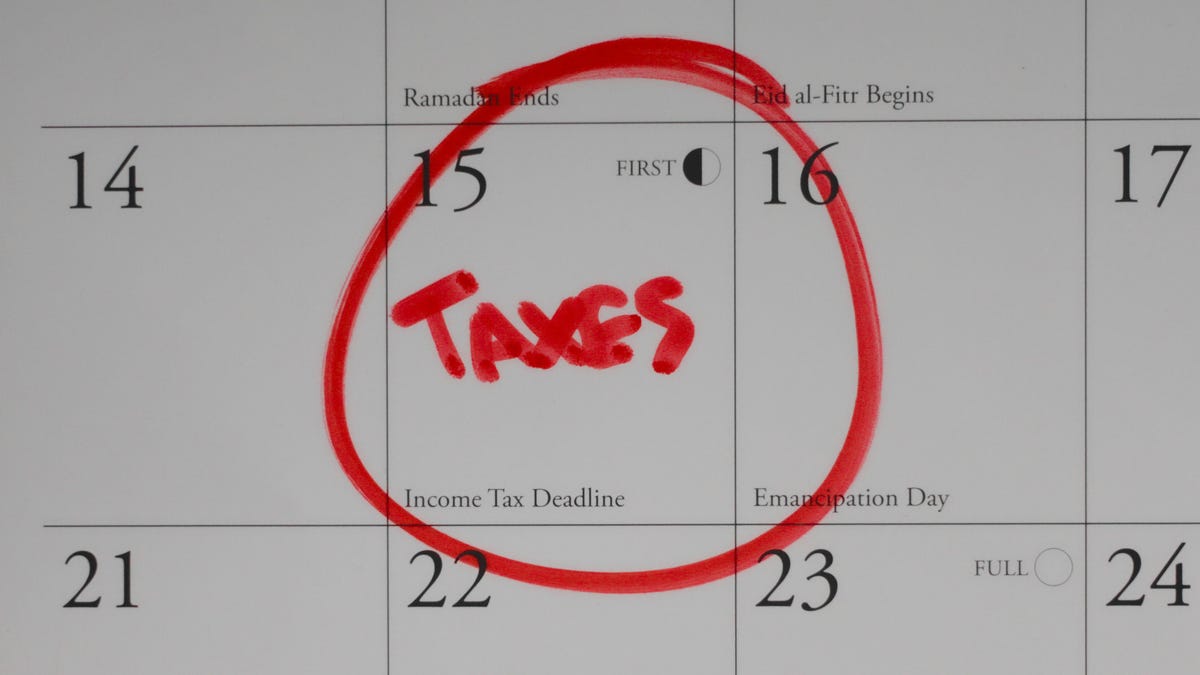
The majority of US taxpayers have to file income taxes by Monday, April 15. However, there are some notable exceptions to this deadline. Two states get short extensions due to holidays, and certain residents in nine states affected by natural disasters also get extensions from the IRS.
So how do you know when you’re required to have your 2023 federal tax return submitted? It depends on which state you live in, and if you were impacted by a natural disaster.
Find out below if you have longer to file your taxes this year. For more, here’s when you could get your tax refund and common mistakes that could delay your refund.
Which states have federal tax filing extensions because of natural disasters?
For most tax filers, tax returns are due April 15 this year. (Due to Patriot’s Day and Emancipation Day, which fall on April 15 and April 16, respectively, Maine and Massachusetts have a tax filing deadline of April 17, 2024.)
Because of severe storms, flooding landslides and other disasters, the IRS has extended the federal tax filing deadlines for several other states with declared disaster areas by the Federal Emergency Management Agency (FEMA). Many tax filers in these states now have a tax deadline of June 17, 2024, to file federal individual and business tax returns and make tax payments. Some locations have even further delays to their federal tax deadlines.
- Alaska: Taxpayers in the Wrangell Cooperative Association of Alaska Tribal Nation who experienced storms, landslides and mudslides in November 2023 now have a tax deadline of July 15, 2024.
- California: Residents and businesses in San Diego County who were impacted by the storms and flooding of Jan. 21, 2024, have a deadline of June 17, 2024.
- Connecticut: Those parts of the state affected by severe storms, flooding and a potential dam breach that began on Jan. 10, 2024 also have a deadline of June 17, 2024.
- Hawaii: Individuals and businesses impacted by the wildfires of Aug. 8, 2023, have until Aug. 7, 2024, to file federal taxes.
- Maine: Parts of the state impacted by the severe storms and flooding that began on Dec. 17, 2023 have a tax deadline of June 17, 2024.
- Michigan: Taxpayers in parts of the state affected by severe storms, tornadoes and flooding that began on Aug. 24, 2023, now have a tax deadline of June 17, 2024.
- Rhode Island: Those parts of the state impacted by severe storms, flooding and tornadoes that began on Sept. 10, 2023, now have until June 17, 2024 to file federal taxes.
- Tennessee: Taxpayers in parts of the state were affected by severe storms and tornadoes that began on Dec. 9, 2023, have a federal tax deadline of June 17, 2024.
- West Virginia: Finally, parts of the state impacted by severe storms, flooding, landslides and mudslides that began on Aug. 28, 2023, now have a federal tax deadline of June 17, 2024.
If you live in one of the affected areas with delayed tax deadlines, you can still request a tax extension. If you do, your new filing deadline will be Oct. 15, 2024, although any taxes you owe are due at the time of your first tax deadline.
Which states have Tax Day deadlines later than the federal deadline?
Nine states have tax deadlines that are after the IRS deadline for federal taxes. (Note that Alaska, Florida, Nevada, New Hampshire, South Dakota, Tennessee, Texas, Washington and Wyoming do not collect income taxes.)
Here are the state filing deadlines that differ from the federal deadline:
- Delaware: April 30, 2024
- Hawaii: April 22, 2024
- Iowa: April 30, 2024
- Louisiana: May 15, 2024
- Maine: April 17, 2024 unless you live in a declared disaster area (see above)
- Massachusetts: April 17, 2024
- New Mexico: April 30, 2024 if filing electronically, otherwise April 15
- Oklahoma: April 20, 2024 if filing electronically, otherwise April 15
- Virginia: May 1, 2024
For more tax information, here’s when to expect your tax refund if you’re claiming the child tax credit. Also, here’s the quickest way to get your tax refund.
